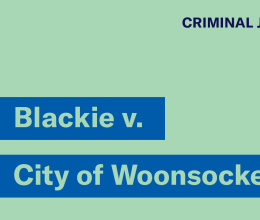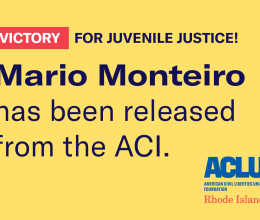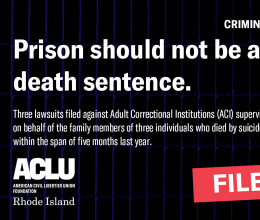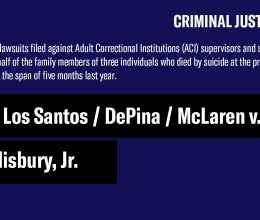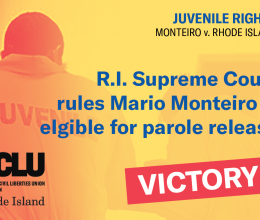The ACLU of Rhode Island today filed an open records lawsuit against the R.I. State Police for refusing to release to the ACLU a copy of a five-minute videotape of a controversial traffic stop of a van with fourteen Guatemalans that took place on I-95 this summer, and for also failing to turn over copies of the agency’s policies governing traffic enforcement procedures.
In September, more than a dozen local community and civil rights organizations sharply criticized the State Police for detaining and transporting to immigration officials the 14 individuals after the driver was stopped for failing to use a turn signal. The groups raised concerns that the Guatemalans had been victims of racial profiling.
Responding to an internal complaint that the ACLU had filed on their behalf, State Police Superintendent Steven Pare said that the trooper involved in the stop “acted professionally and appropriately.” He specifically cited his review of the videotape, but refused to release a copy of it to the ACLU, citing a variety of open records law exemptions. However, today’s lawsuit, filed by ACLU cooperating attorney Thomas W. Lyons, notes that the agency has shown the videotape “to some members of the public who are not employees of the State Police and offered to show it to other members of the public.”
Even though the stop apparently lasted an hour or so, only the first five minutes were videotaped, prompting further questions from community groups. In addition, even though the police response to the ACLU complaint stated that it was “undisputed” that the trooper advised the driver of the reason for the traffic stop, one of the people permitted to view the videotape claims that the tape provides no support for this assertion.
Among the many other unanswered questions about the stop is why the trooper, who was on speed radar patrol, chose to leave his post to pull over the driver of this particular vehicle, whose only infraction was failing to use a turn signal, not speeding. The ACLU is interested in determining whether the agency’s traffic enforcement policies were followed during this stop, but in refusing to turn over those documents, the Superintendent cited the same open records law exemptions he relied upon in denying the ACLU access to the videotape. The lawsuit seeks a court order requiring the agency to turn over the requested videotape and policies, and the imposition of fines and attorneys’ fees as provided by the open records law.
RI ACLU volunteer attorney Lyons said today: “No state agency should be able to make selective disclosures of its records to chosen members of the public, especially when those records are the basis for denying a public complaint.” RI ACLU executive director Steven Brown added: “The agency’s excessive secrecy only undermines the community’s confidence in the State Police and the public’s ability to hold the agency accountable for its actions.”


